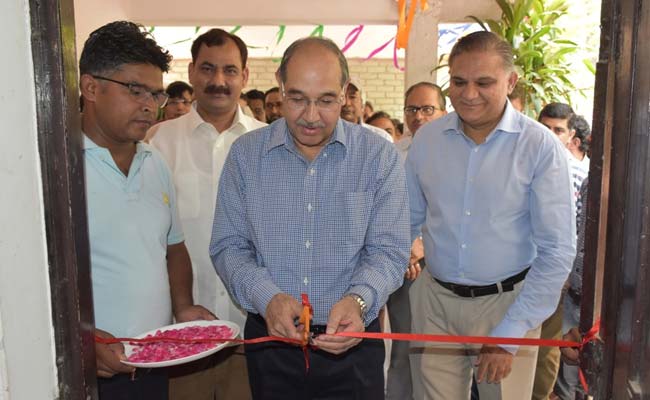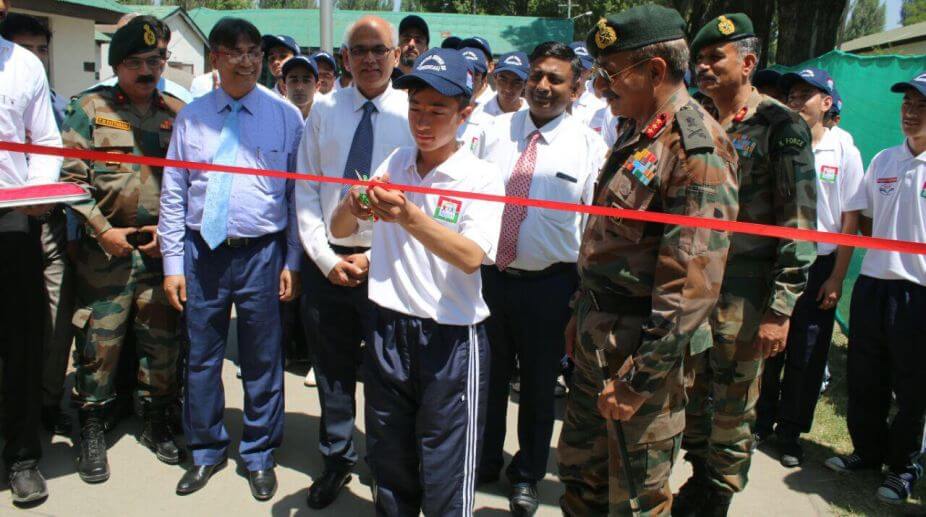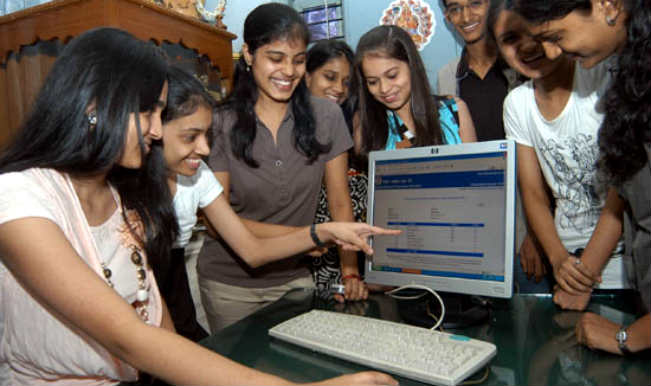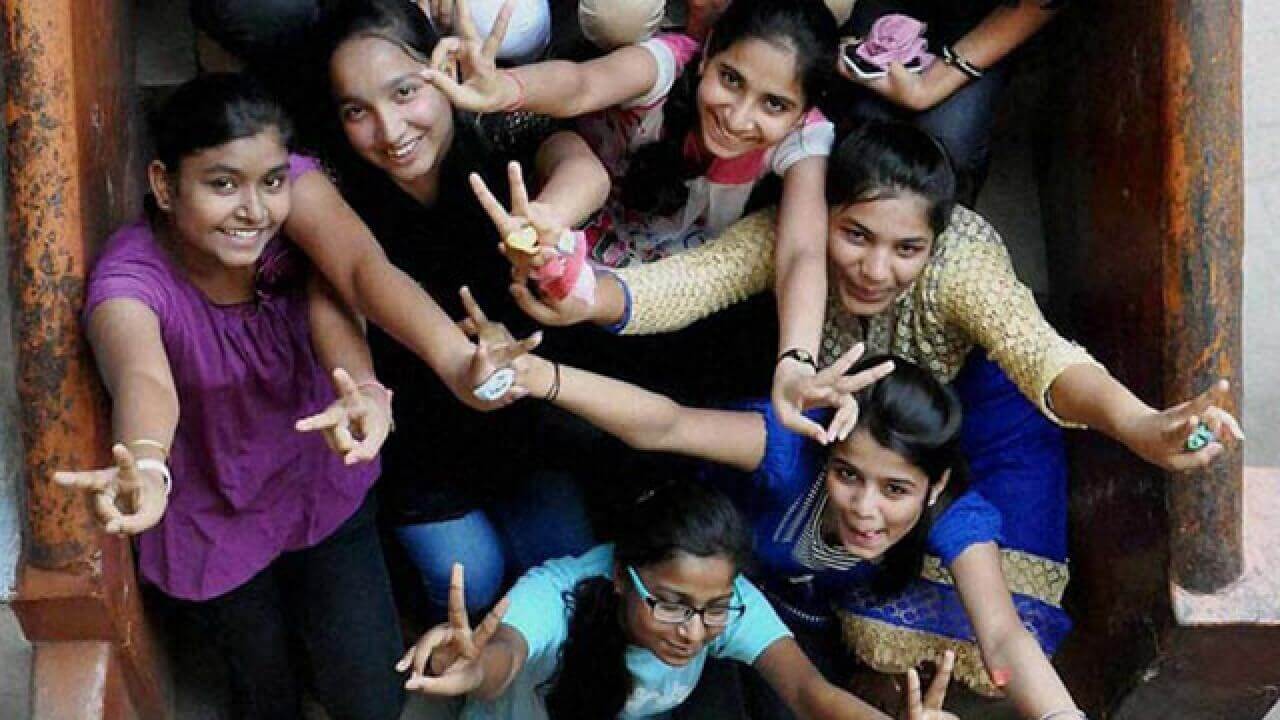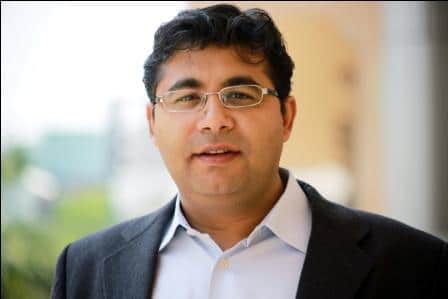 At Next Education, we believe that scalable, sustainable, personalized quality education for a child is possible only by leveraging technology, says Beas Dev Ralhan, CEO & Co-founder, Next Education India Pvt Ltd, in conversation with Elets News Network (ENN).
At Next Education, we believe that scalable, sustainable, personalized quality education for a child is possible only by leveraging technology, says Beas Dev Ralhan, CEO & Co-founder, Next Education India Pvt Ltd, in conversation with Elets News Network (ENN).
What is the role of technology in improving the education scenario in India and removing the structural blocks?
In India, technology has been a late entrant into the education sector as compared to the other sectors such as health and infrastructure. But now that it has finally made inroads into the sector, it has the potential to give the sector a complete overhaul and resolve some of the long-pending roadblocks.
Lack of skilled teachers and quality content and poor ways of tracking learning outcomes are some of the issues plaguing the Indian education system. For instance, teachers are expected to use digital aids in the classroom without even receiving adequate training. Any inadequacies from the teachers’ end are often criticised without taking into consideration the lack of teacher-training programmes. Devising quality teacher-training programmes is the need of the hour. Teachers, even those who are remotely based, can take up various Massive Open Online Courses (MOOCs) offered by various reputed institutes to upskill themselves and keep themselves abreast of the latest pedagogies. In an effort to train teachers with the best global teaching practices, Next Education, in collaboration with Indian Institute of Technology Bombay (IIT-B) offers a couple of MOOCs. To address the problem, the government could also mull over setting up of public–private partnerships to design effective teacher-training programmes.
Furthermore, one of the reasons why schools do not thrive even when they receive enough funding to run their academic and administrative wings is the lack of proper academic benchmarks and effective ways to gauge learning outcomes. Adoption of learning management system (LMS) can be a revolutionary step in improving the quality of education in India. Technology-mediated education can track the learning progress made and suggest corrective measures whenever there are deviations from the well-defined learning paths.
Besides these, accessibility and affordability are other impediments to the delivery of quality education to Indian students. There are remote schools with low resources that fail to deliver quality education to students. With almost 68% of the Indian population residing in rural India, quality education is inaccessible to most Indian students. Adoption of LMSs would largely address the grave situation. Although tech-mediated education seems expensive, it is actually quite affordable in reality. Thanks to the penetration of technology, delivery of quality education has become cheaper than private tuitions. For instance, a private teacher for one subject charges approximately Rs 2,000 to Rs 5, 000 per student for 1 month. LMS with an integrated adaptive learning software would cost around Rs 200–500 for each student per month. The advent of technology in the education sector has democratised learning, making it available to a larger audience at an affordable cost.
Besides giving students access to quality curriculum designed by experienced subject matter experts, LMS also gives a 360 degree understanding of students’ learning progress. Learning is not confined to the classroom and does not happen in a vacuum – students’ health, family environment, etc. all have bearings on their overall academic performance. A student might have been absent for a couple of days and that could be the reason for his/ her poor performance in a class test. A teacher, dealing with a class strength of 40 students, might fail to take these into consideration, however, LMS wouldn’t.
Next Education is on the verge of launching its LMS, NextLearningPlatform. You could expect it this academic year.
Gamification, the application of game mechanics in a non-game context, has been embraced by various educational institutes. How does it make learning engaging and joyful?
Since time immemorial, teachers have struggled to hold students’ attention for long and engage them effectively in their own learning. Gamification of the learning process is an excellent way to solve those concerns.
When students sign up on online platforms to practise their lessons in a gaming environment, they can challenge others, embrace competition and earn rewards, which is their biggest motivation. Instant feedback and gratification in the form of scores keeps the students hooked. It also helps in developing learner agency. Besides, it helps students take up active role in their education, become more inquisitive, solve problems faster, learn more efficiently, and learn to push themselves harder.
Unfortunately, non-cognitive skills are perceived as less important and, often altogether, dismissed in a traditional classroom. However, patience, discipline and motivation are as important as intelligence to succeed in life. A gaming environment encourages such skills in students.
In fact, the education system, in a way, has always been gamified. Doing well in exams guarantee good marks, merits, awards, appreciation from teachers, and also the option of moving to the next level/grade. However, dull curriculum, ineffective content delivery and unhealthy competition have killed the joy of learning and made learning a cumbersome process. A revival of gamification of learning can help bring back the joy. Many of the experiments and activities of Next Education’s NextLab, an experiential learning solution for science, maths, English and robotics, are gamified.
What is the significance of 21st century skills to prepare children for the future?
The world is fast transitioning into a knowledge economy. To be an actively contributing member, each child should be equipped with 21st century skills such as critical-thinking, creative thinking, problem solving and collaboration. Subject matter knowledge alone is not enough to be successful in the 21st century. Take the computer science subject, for instance; we could say that the cutting-edge technologies of today could become either outdated or evolve into unrecognisably advanced forms 15 years from now. Now, we use a word processor to write and format documents, use a slideshow program to create presentations and use spreadsheets to manage data. However, when new versions of software are developed and applications change, day-to-day activities take a beating. Computer Masti, our computer science curriculum, designed in collaboration with IIT-B, has been designed such that it makes students IT fluent, not just IT literates. In fact, the design of any curriculum should focus on enhancing 21st century skills in students rather than just imparting subject lessons.
What are the solutions provided by Next Education. How do you design the curriculum in line with the latest and best industry practices?
R&D has been at the heart of our venture right from the beginning. Our passionate team of technology enthusiasts and esteemed subject matter experts work relentlessly to design an effective curriculum for students. Unlike many other education solutions providers who come to a standstill after creating a pool of content, we work to increase our range of offerings.
We constantly update our rich repository of audiovisual content, which includes traditional 2D and 3D animations as well as more contemporary ones like claymation and papercraft animation, to provide students with the best learning experience. In fact, we validate the quality of
our courseware through IIT-B’s testing tool called Learning Object Evaluation Instrument (LOBE).
We started off by launching the self-learning solution LearnNext and then moved on to offer the digital classroom solution TeachNext. In the course of a decade, we have increased our offerings to NextERP, NextLab, NextCurriculum and more, and have constantly strived to address the looming gaps in the K-12 sector. We realised that to truly bring forth great academic results, it is imperative to cater to schools’ administrative needs too, and thus, we have ventured to provide schools with NextERP. We further felt that there was a disruption in between the courseware of a digital classroom and that of books. Moreover, teaching plans, lab plans and other facets of learning in a classroom are also not well-mapped as schools usually take each requisite from different companies. Realising the gap, we have designed an integrated curriculum.
What is your vision and mission?
Our vision is to provide optimal academic and administrative solutions to all K-12 stakeholders.
Our mission is to make quality education accessible to every child. We want to impact the lives of 25–30% of the total school-going-population through our educational products by 2030. And, in the process, we aim to be the no. 1 education solutions provider in India in the next 10 years.













